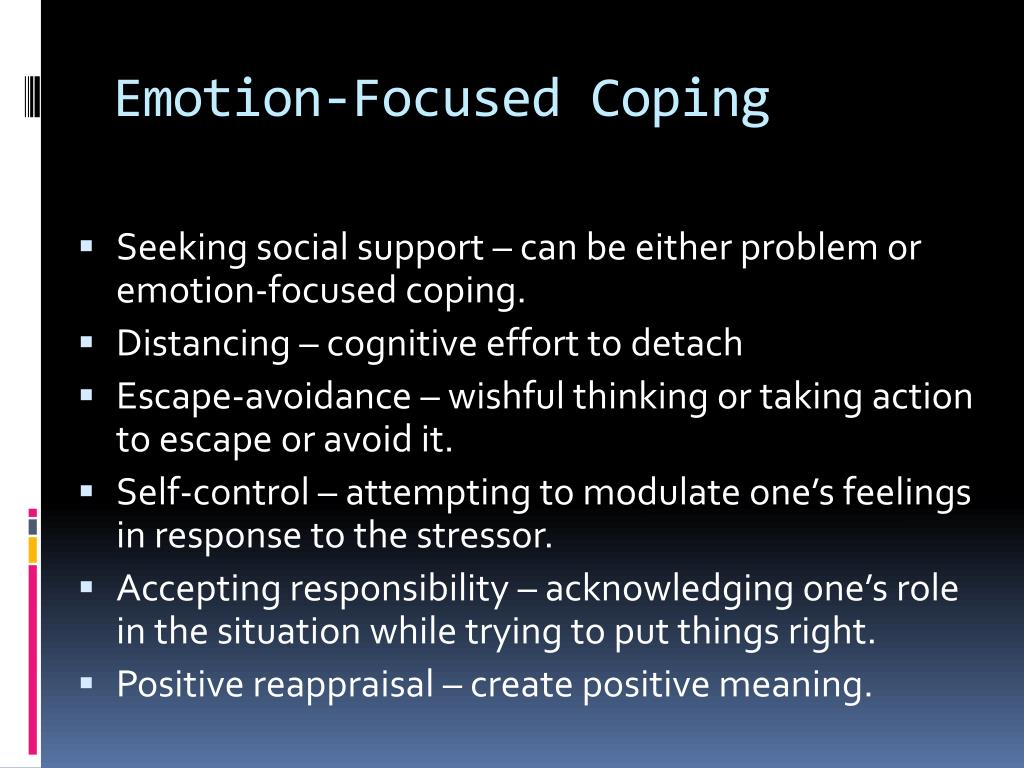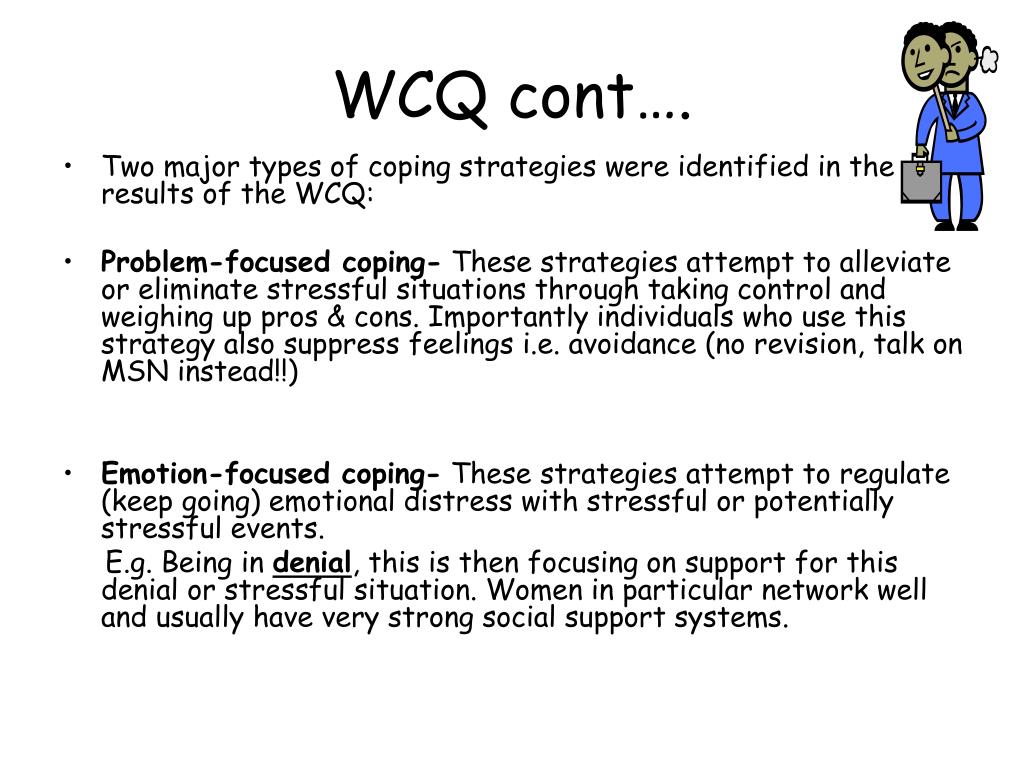
The main criticism is that that in focusing only on coping styles, the variability and complexity of coping efforts overall are not captured effectively, and stifles predictive validity within the research (Lazarus and Folkman, 1984). Research into coping styles has received a fair amount of criticism. Your coping style may stay consistent across different situations and experiences, and the coping strategies you use within this may change and adapt.

Endler and Parker (1990) suggested that there are three basic coping styles: task-oriented, emotion-oriented, and avoidance-oriented. While they seem similar, there is a core distinction between the two: Coping StylesĬoping style refers to your disposition towards handling challenging situations or stressors. Most of the research on coping is divided into exploring two key areas: coping styles or coping strategies. Coping strategies can be positive, for example, tapping into your social support network, or negative, such as turning to alcohol or drugs. How we cope as individuals may also change as we develop, and just because we respond to one scenario in one way, doesn’t mean we’ll react to it the same way if it happens again.Ĭoping questionnaires are helping us to understand our coping strategies at any given moment towards different situations in our lives. Individual behaviors relating to coping can be challenging to measure, as we respond differently to the same type of stressor, depending on several different factors including our character traits, specific environment, support networks, and individual life experiences. These mechanisms could be good or bad, some effective and some less so, as an example, consider emotional eating or smoking, versus seeking emotional support from friends or building resilience. (2021) coping is making use of mechanisms intended to reduce psychological stress. Perhaps when we’re trying to understand what coping questionnaires measure, a good place to start is by understanding what we mean by ‘coping.’Īccording to Gurvich et al.

What Do Coping Questionnaires Measure Exactly?Ĭoping questionnaires aim to measure your coping strategies and ability to self-regulate in response to different experienced stressors. The Brief Resilient Coping Scale (BRCS).What Do Coping Questionnaires Measure Exactly?.


 0 kommentar(er)
0 kommentar(er)
